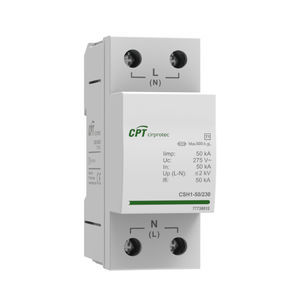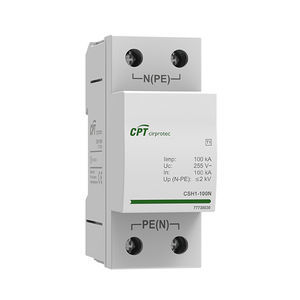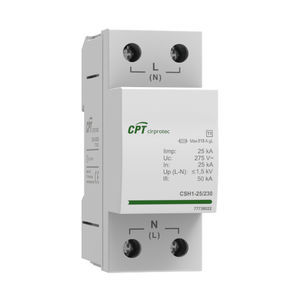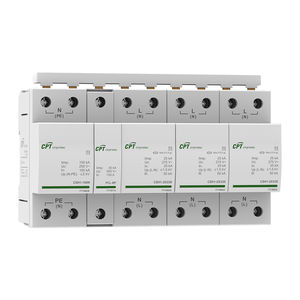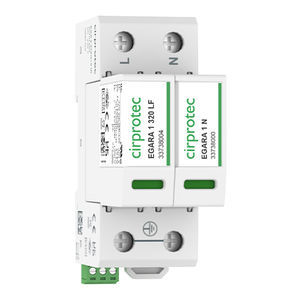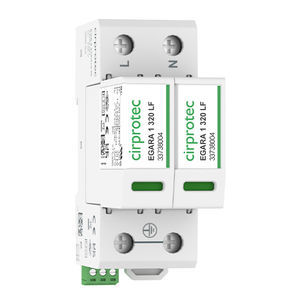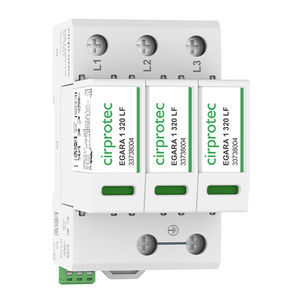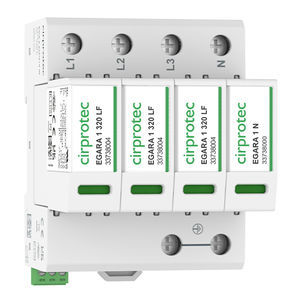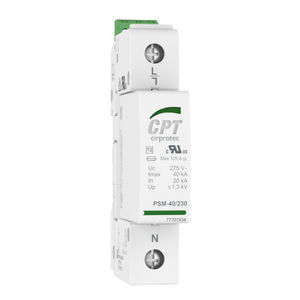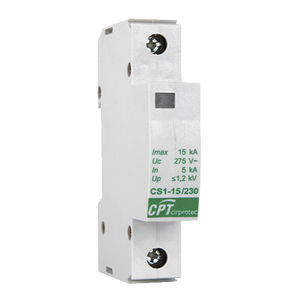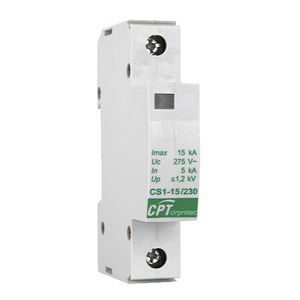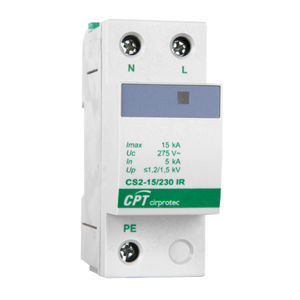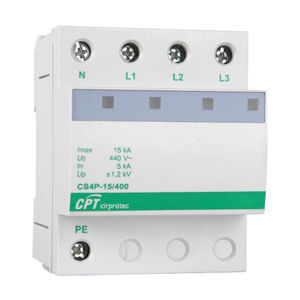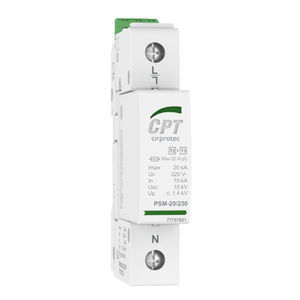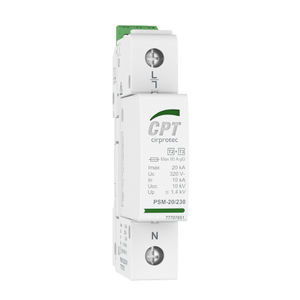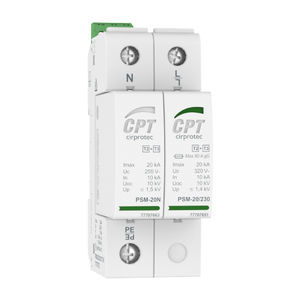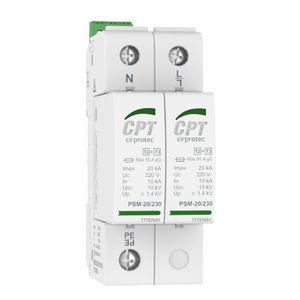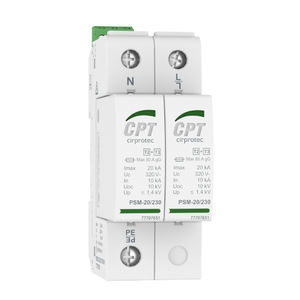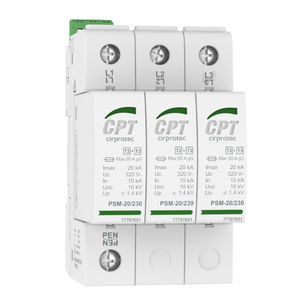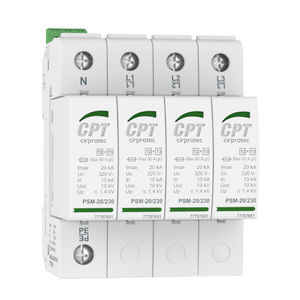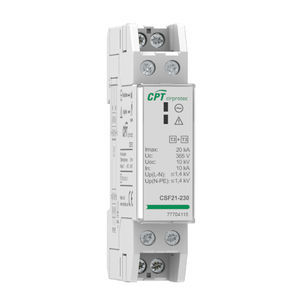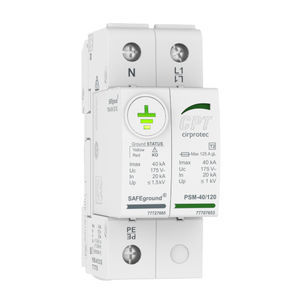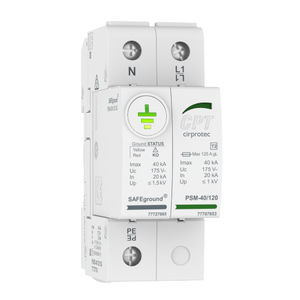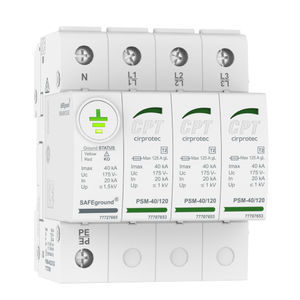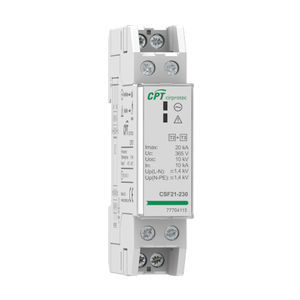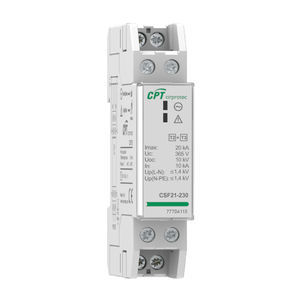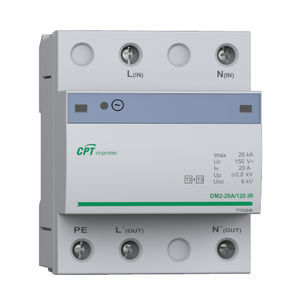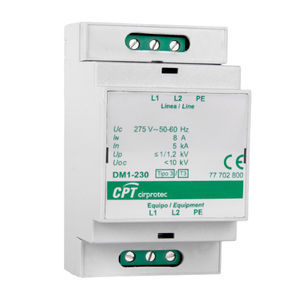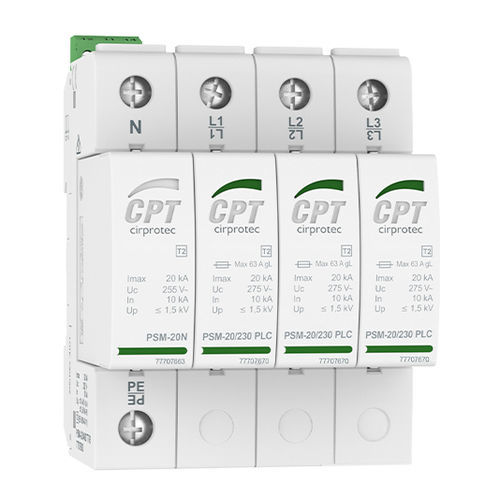
Type 2 surge protector PSM4-20/400 PLC TTtype 3class IIclass III
Add to favorites
Compare this product
Characteristics
- Type
- type 2, class II, type 3, class III
- Applications
- for telecom applications
- Other characteristics
- 4-pole, three-phase, DIN rail, plug-in
- Voltage
230 V, 400 V
- Primary current
10,000 A
Description
PSM 20 PLC is the range of devices for discharging induced transient overvoltages (Type 2+3 / Class II+III). DIN rail plug-in format. Compatible with PLC (Power Line Communication networks).
Features
• Suitable for the second stage of protection in supply distribution panels in which Type 1 protection devices are installed, or for the first stage of protection in residential, commercial or other applications not exposed to direct strikes and with no external lightning protection system.
• High discharge capacity with an 8/20 μs waveform. Imax: 20 kA.
• Exclusive devices for TNS, TNC, TT. 120/208 V, 230/400 V, 277/480 V networks.
• Exclusive devices which are compatible with Power Line Communication (PLC) networks.
• Reversible chassis to allow cable entry from above or below.
• Mechanically polarized cartridges depending on the network voltage, to avoid possible cartridge replacement errors.
• Biconnect - two types of terminal: for rigid or flexible cable and for fork type comb busbar.
• Compatible with PLC (Power Line Communication networks).
Standards and certifications
• IEC 61643-11
• EN 61643-11
Applications
• Building
• Industry
• Telecom
• Water treatment
Catalogs
No catalogs are available for this product.
See all of Cirprotec‘s catalogsRelated Searches
- Surge protector
- DIN rail surge protector
- Type 2 surge protector
- Low-voltage surge protector
- Class I surge arrester
- Multipole surge protector
- AC surge protector
- Class II surge arrester
- Plug-in surge protector
- Compact surge protector
- Monobloc surge protector
- Type 3 surge protector
- Three-phase surge protector
- Single-phase surge protector
- Anti-surge surge protector
- Photovoltaïc installation surge arrester
- Surge protector for telecom applications
- 2-pole surge protector
- Electrical installation surge protector
- Modular surge protector
*Prices are pre-tax. They exclude delivery charges and customs duties and do not include additional charges for installation or activation options. Prices are indicative only and may vary by country, with changes to the cost of raw materials and exchange rates.


